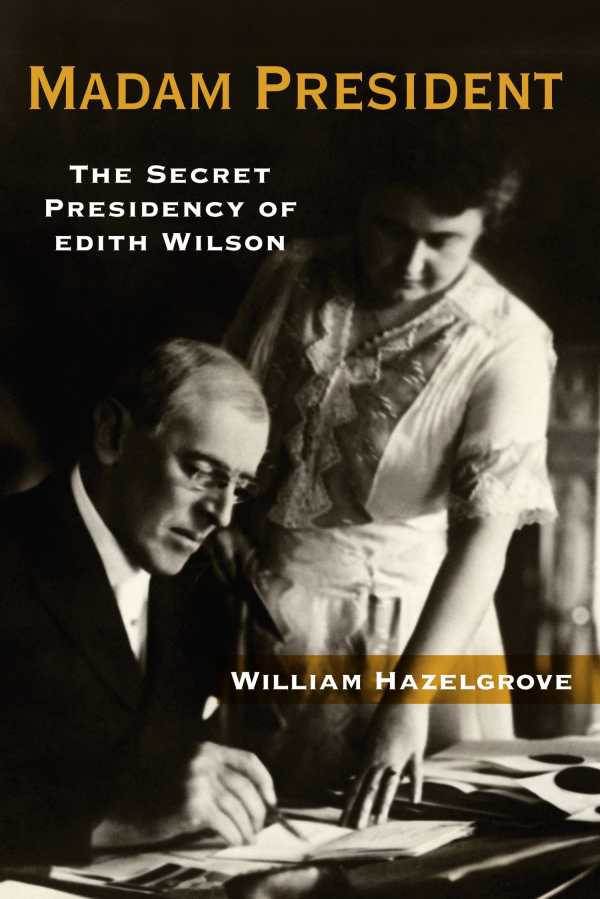Madam President
The Secret Presidency of Edith Wilson
Women have assumed presidential power before, as this compelling portrait of Edith Wilson shows.
Has America already had a woman president? William Hazelgrove’s Madam President: The Secret Presidency of Edith Wilson makes a compelling case to that effect, detailing how First Lady Edith Wilson assumed many of her husband’s responsibilities after Woodrow Wilson suffered a crippling stroke.
Pairing historical facts with a lively, engaging narrative, Hazelgrove sets the scene leading to the President’s health crisis. Wilson came to office with preexisting hypertension and arteriosclerosis. World War I and the unsuccessful fight to join the League of Nations took a further toll on his well-being. Following the October 1919 stroke, Wilson was left partially paralyzed and blind in one eye. He was also physically weak, psychologically overwhelmed, and hardly fit to serve.
Hazelgrove’s portrait of Edith reveals a capable, devoted woman, unexpectedly forced to play a major part in governing the United States. The pressure placed upon Mrs. Wilson was intense. The President’s post-stroke condition had to be kept confidential so as not to alarm an already anxious nation.
Wilson’s political rivals needed to be subdued as well, particularly “venomous serpent” Senator Henry Cabot Lodge, as Edith called him, and the pugnacious Theodore Roosevelt, both men portrayed vividly by Hazelgrove. Despite his health issues, Wilson did not concede to Vice President Thomas Marshall. Therefore, until the end of Wilson’s term in 1921, Edith quietly handled a triage of Oval Office matters while acting as her husband’s confidante and caretaker.
Gesturing to Edith Wilson as “Madam President” is shown to be deserved, though her role was never officially acknowledged. For a woman who had little formal education or prior political experience, Edith Wilson’s efforts to keep the White House afloat are shown to have been extraordinary.
Madam President brings Edith Wilson’s so-called petticoat government to its rightful light, and offers a poignant look at Woodrow Wilson, as a lover, a husband, and a leader.
Reviewed by
Meg Nola
Disclosure: This article is not an endorsement, but a review. The publisher of this book provided free copies of the book to have their book reviewed by a professional reviewer. No fee was paid by the publisher for this review. Foreword Reviews only recommends books that we love. Foreword Magazine, Inc. is disclosing this in accordance with the Federal Trade Commission’s 16 CFR, Part 255.

